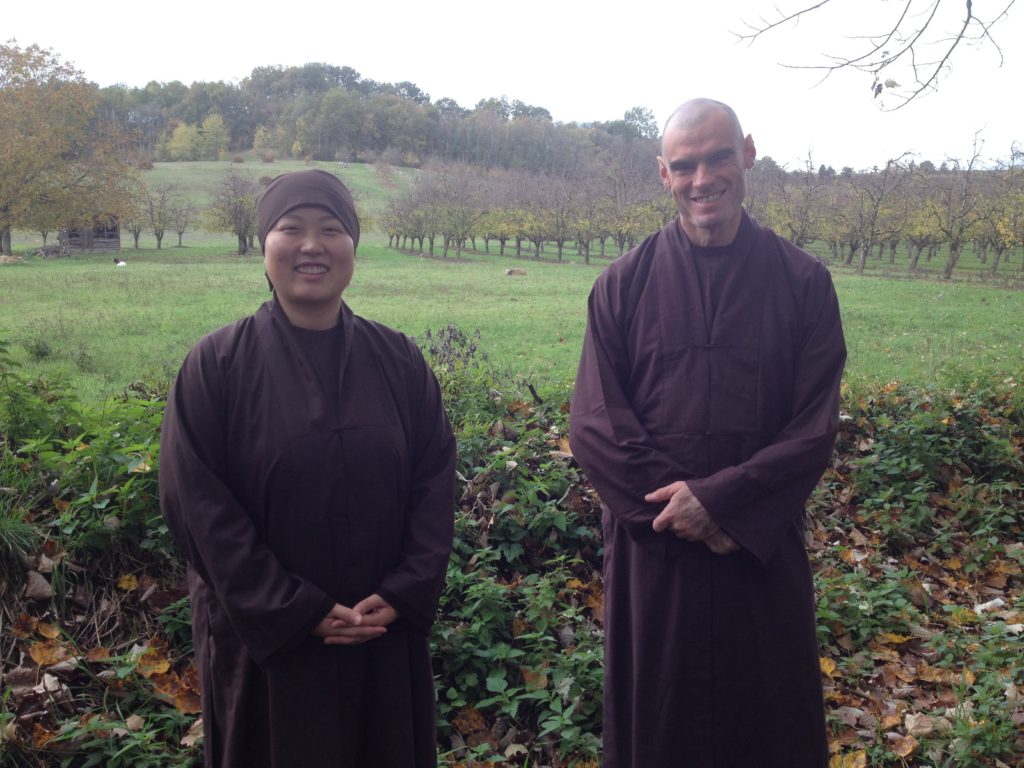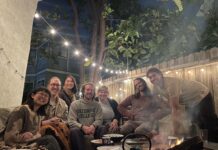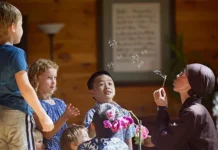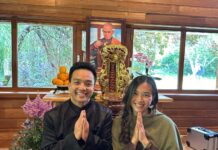Interview Part 1: New Hamlet, 11th November 2018

Q: What was your decision-making process to ordain as a monastic?
Thien Chi: I came to Plum Village for the first time in 2014 for a week. The experience was very deep; at that time I was sure that it’d be a wonderful path. After coming back to Bulgaria, I shared this with my family, but their reaction was negative.
Three years later, I had a difficult time because I wanted to live my life meaningfully and happily. So I reviewed all the options I had and thought about what I wanted to do with my life. Can I create happiness? How can I make my life meaningful? I returned quickly to Plum Village. It was a choice that gave me a lot of relaxation and hope, and it was something I felt I was able to do.
Hien Tam: Before coming to Plum Village for the first time in May 2017, I never thought about becoming a monastic because it was never on my mind. I worked at a broadcasting station and made a TV show. I had finished my program, but I was exhausted at that time. I had a long break of three months and planned to travel somewhere for fun. Not to Plum Village, actually. I had already booked my flight ticket to the Philippines [laughs.] I wanted to go scuba diving, eat, and play.
Then my father suggested, “If you have a long break, maybe you can go to Plum Village?” Thay’s books are famous in Korea, and my parents know the tradition. Thay offered retreats twice in Korea; my parents were there. Since they knew the practice would help me, I changed my plans. My father also said, “If you go to Plum Village, I will pay for the flight tickets.” [laughs.] So I thought, “Instead of scuba diving in the Philippines, I can travel to Europe.” I came to Plum Village with a plan to stay for two weeks. I already knew Thay’s books at that time.
I didn’t practice, but I knew Thay’s main teachings. That intellectual knowledge was different from being in Plum Village and experiencing and feeling it. Coming to Plum Village was unusual because I felt free. When you visit a temple in Korea for a retreat, it’s strict. The temple takes your phone, and it has certain rules for how to behave. But we don’t have these kinds of rules in Plum Village. During the first two weeks, I just enjoyed the nature. I didn’t pay much attention to Buddhism because I just needed to relax. I didn’t know I had suffering inside of me.
I thought I had enjoyed life. I really liked my job because I like writing, and I was a TV script writer. I like my friends and family. I felt fulfilled. But after I came to Plum Village, I got to know myself better. I started spending time on my own and could see my suffering more clearly. I’ve had some struggles, but I didn’t look deeply into them before Plum Village; it was easy to ignore them and distract myself.
A story I shared many times with my sisters and friends is that in Lower Hamlet, a big Gratitude calligraphy appears above the altar. I wondered about this because this is the main meditation hall and there is no Buddha statue. At first I did not understand the calligraphy, so I looked up the meaning in my Korean dictionary. When I found out the meaning, I was shocked because I had never felt gratitude for anything. Until that moment I thought, “If something good happens to me, it’s because I’m good.” I never said thank you to my friends and family, unless they gave me something. But it didn’t come from my heart. I realized I never felt gratitude for anything, and that was a big shock! It was like as if I changed my glasses, and I suddenly saw things more clearly.
Then I could connect more with my parents and friends. I became curious and thought, “Wow, if such a significant change can occur after only two weeks, I wonder what I can transform if I stay here for a long time.” I extended my stay for several more weeks instead of traveling to other places in Europe because I discovered that this practice is healthy. It can bring change in people, and it makes them happier. Like Brother Thien Chi, I wanted to lead a more meaningful life.
In Plum Village, I have many good conditions: Dharma talks and conversations with sisters and brothers. I am more aware of the impermanence of life; we cannot live forever. I felt that it was good here, and I wanted to become a monastic. It’s a meaningful path—one that can help people and help them change their mind to live happily. So I went back to Korea for three months, quit my job, and moved my stuff. After I came back to Plum Village, I became an aspirant during the 2017-2018 winter retreat.
Interview conducted by Annica and transcribed by Diane F. Wyzga
In Part II of the interview, Sister Hien Tam and Brother Thien Chi share about their monastic aspirancy process and life as a novice monastic.


















I’m going to explore the monastic path this fall at Deer Park 🙂